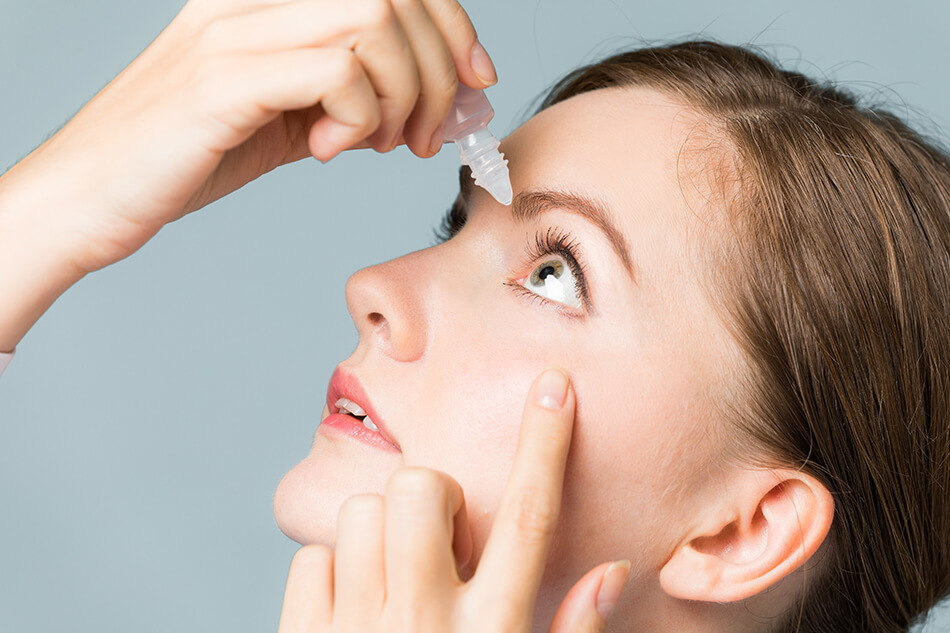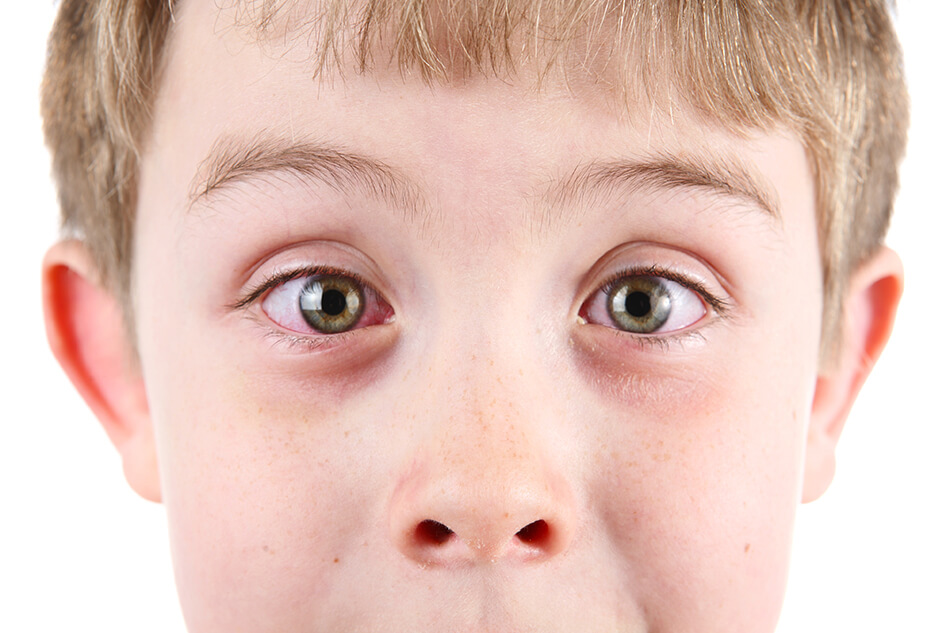Here’s What Happens If You Wear Contact Lenses When You’re Sick

Is it ok to wear contact lenses when you’re sick? The short answer is no. When you’re fighting off a bug, the best thing you can do for your eyes is refrain from putting in your contacts.
Rest is the first remedy to try when you aren’t feeling well, so that also means giving your eyes a break from contact lenses.
Your contact lenses might normally be a saving grace. But, contacts can irritate your eyes when you’re sick. Catching a cold or the flu can make your body more susceptible to eye discomfort.
If you still aren’t convinced, here are some examples why it’s advised not to wear your contact lenses when sick.
Dry Eyes
As their name suggests, the eyes’ tear ducts are responsible for producing tears. Tears keep the surfaces of your eyes lubricated, giving you clear and comfortable vision.
Unfortunately, contracting an illness can disrupt the body’s natural tear production. Without enough tears, your eyes can become dehydrated. Dry eyes make it difficult to insert your contact lenses. If you do manage to get your contacts in, your eyes are at risk of getting scratched. Without a protective barrier (i.e. tears), the lenses could potentially damage your eye..

Certain medications can also dry your eyes, which can often lead to itchiness. No matter how much you want to relieve the itch, never aggravate your eyes further by rubbing them.
Sometimes, the opposite can happen. Your tear ducts will appear to overproduce when you are sick. These tears don’t usually contain the oils necessary to protect and hydrate your eyes. The best way to combat dry eyes is to take a break from your contacts, as well as use lubricating eye drops.
Blurry Vision
The body will try to overcompensate for the ailment. This can lead to an increase in mucus production. Mucus buildup in and around the eyes can distort or blur your vision. It’s especially noticeable when you wear contacts. The mucus sticks onto the lens and can even cause the lens to wear down more quickly.

Dry eyes can also be the reason for blurred vision, especially if you’re wearing contact lenses. When your eyes are dry, it’s more difficult for the lens to sit well on the surface of your eye. The lens can move around and blur your vision.
Depending on the type of medication you’re taking for your cold, it too could have an effect on your vision. Antihistamines and corticosteroids are common drugs that are available over the counter. Symptoms for asthma and allergies are often made worse by the common cold. The swelling that occurs within the eyes after taking these drugs can cloud your vision. This side effect is temporary and should subside shortly.
Pink Eye
Conjunctivitis, or pink eye, is most frequently associated with a head cold or the flu. Pink eye can come about in a variety of ways. But, we’ll focus on allergic conjunctivitis and viral conjunctivitis.
People who suffer from seasonal allergies can get pink eye after coming into contact with an allergen. As if allergies aren’t bad enough! It’s actually not uncommon for people to also come down with a cold as allergy season starts. These spring colds can worsen allergy symptoms. This includes itchy eyes, excessive discharge in the eyes, swollen eyelids, and discoloration of the whites of the eyes.

You can get viral conjunctivitis from viruses associated with the common cold. Unlike allergic conjunctivitis, the viral strain is infectious and contagious. It can spread within the body, affecting more than one component of the respiratory system. The nasal cavity, throat, lungs and chest can all suffer. The virus can also spread to others through exposure to an infected cough or sneeze.
In any case, pink eye is a risk to your eye health and that of those around you. And wearing contact lenses increases the risks. With allergic conjunctivitis, allergens can get trapped underneath your lens. This can cause great discomfort and even tearing of the lens. Soft contacts are the most comfortable to wear. Still, they too can absorb airborne irritants.
Sometimes, contact lenses can even be the cause of the viral infection. If you have sensitive eyes, some brands of contacts may be better suited for you than others. You’ll want to consult with your optometrist about the perfect contact lenses for you. Also ask for their advice to prevent pink eye from happening again.
If You Must Wear Contact Lenses, Practice Good Hand Hygiene!

When you’ve caught the common cold, it’s hard to escape all the coughing and sneezing that comes along with it. You need to be extra diligent about proper hygiene when handling your contact lenses.
Good hand hygiene means washing your hands with soap and water before touching your eyes or your contact lenses. It’s also important to clean underneath your fingernails, as dirt and invisible bacteria can get trapped there. Aside from putting in and taking out your contacts, you shouldn’t touch or rub your eyes when you’re sick. The less you touch your eyes, the less chance there is for germ transfer.
And finally, aside from clean hands, you want to ensure that your contact lens accessories are also clean. That means you’ll need to replace your contact lens case frequently. And remember to only use non-expired contact lens solution.
Next time you’re sick, remember this article and think twice before you put in your contact lenses!
